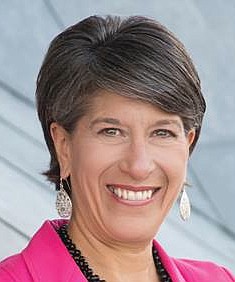There seems to be constant buzz about how busy families are and how little time they spend together. Even during the summer months, between work, screens, music, sports and other commitments, families stay on the go.
According to "The State of Obesity: Better Policies for Healthier America" survey released in 2015, some 78 million Americans are obese, which puts them at an increased risk of health problems, including heart disease, diabetes and cancer. In 1980, no state had an adult obesity rate above 15 percent. Among children and teenagers, 31.8 percent were overweight or obese and nearly 17 percent were obese, including 5 percent of children between the ages of 6 and 11 and 6.5 percent of those between the ages of 12 and 19 who were severely obese.
"In order to build a national culture of health, we must help all children, no matter who they are or where they live, grow up at a healthy weight," said Robert Wood Johnson Foundation President and CEO Risa Lavizzo-Mourey. "We know that when we take comprehensive steps to help families be more active and eat healthier foods, we can see progress. Now we must extend those efforts and that progress to every community in the country."
Regular exercise, adequate rest and healthy eating can be the difference in a family that lives, plays, learns and works well together and one that does not.
"Research shows that children need regular exercise to build strong bones and muscles," says Teresa Wade, health and fitness director at the Sports Barn. "Exercise also helps children sleep well at night and stay alert during the day. Habits such as these, established in childhood, help adolescents maintain healthy weight despite the hormonal changes and social influences that can lead to overeating. Active children are more likely to become fit adults."
Getting your family in shape does not have to cost a lot of money, but it does require you to move away from the screens and do something. Shape Up U.S. gives lots of suggestions for busy families who want to get and stay active.
* Schedule a regular time throughout the week for physical activity.
* Take turns selecting a family activity to do together each week.
* Start a log of daily fitness activities for each family member.
* Adapt all activities to suit those with special needs and preferences.
* Help everyone find something active that makes them feel successful.
* Buy equipment or toys that promote physical activity.
* Discover what free and low-cost physical activity spots are near your home (park, bike trail, hiking trail, tennis court, swimming pool, etc.).
* Limit the time you spend in front of screens.
* Use physical activity as a reward instead of food (e.g. family goes skating).
* Emphasize the importance of having fun and learning. Avoid a push "to win."
"I encourage families to slow down a bit, schedule time in your week to be active together - actually pencil your family into your planner," Wade says. "If you wait for it to happen, it isn't going to happen. Believe it or not, exercise can be fun. Start slowly with something like walking or biking in the neighborhood. When my grandchildren are with me, we take a walk around the block every night before we go to bed. It is a wind-down time and helps us connect before the end of the day."
Julie Baumgardner is president and CEO of family advocacy nonprofit First Things First. Email her at julieb@firstthings.org.
